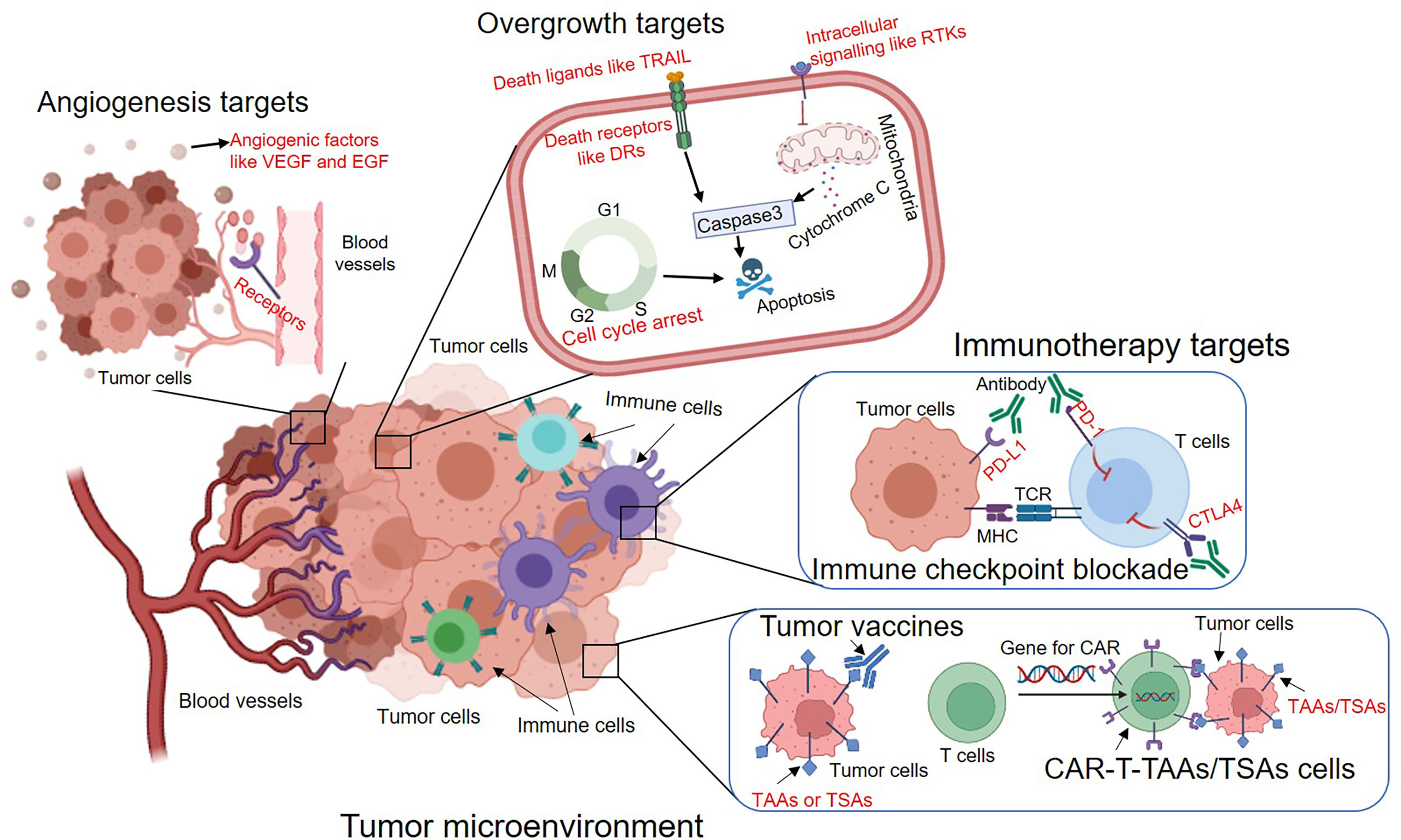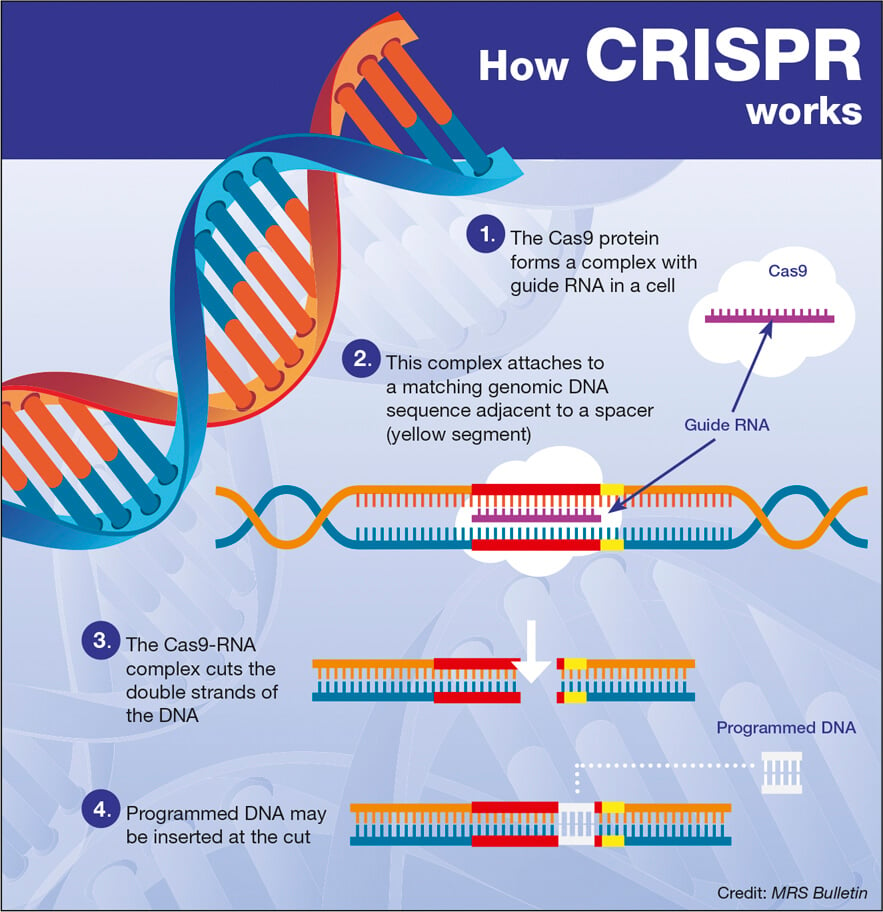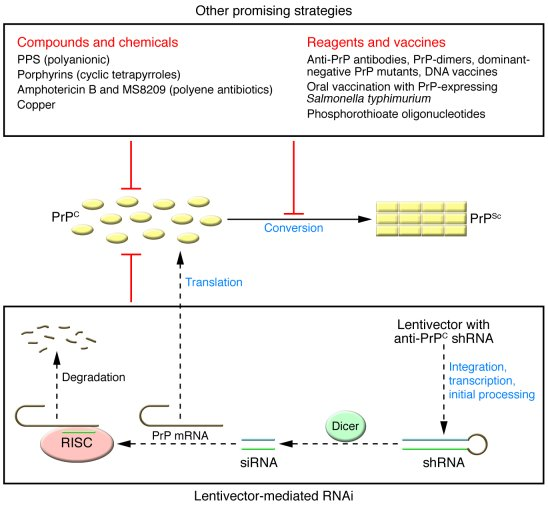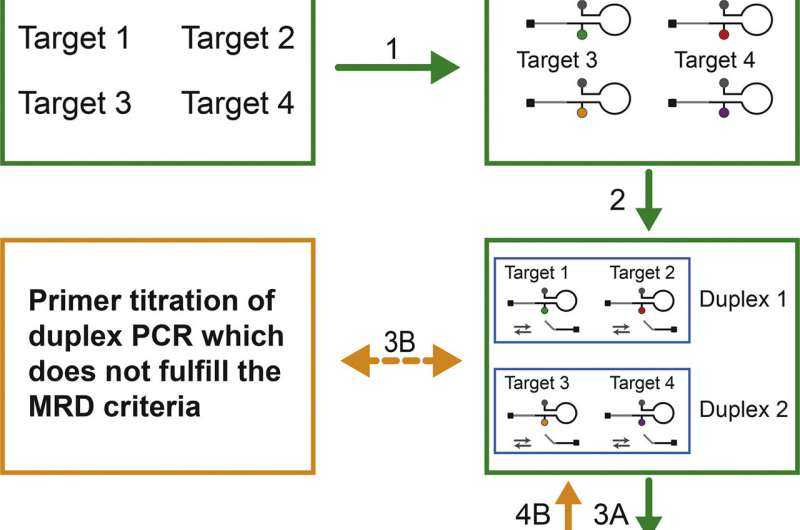Targeted molecular therapies represent a groundbreaking advancement in cancer treatment, focusing on the intricate connections between genetic mutations and protein interactions. By developing small molecules that can specifically bind to proteins involved in cancerous processes, researchers aim to disrupt the uncontrolled growth of tumors. Recent studies from Harvard’s Department of Chemistry and Chemical Biology highlight the potential of molecular glues—innovative agents that facilitate necessary protein interactions to trigger targeted cellular responses. These therapeutic strategies not only address the root causes of cancer but also open new avenues in molecular drug discovery. As scientists deepen their understanding of how to manipulate these protein interactions, we can anticipate significant progress in effective cancer therapies, offering hope to patients and new insights for cancer research.
The realm of precise molecular interventions is evolving rapidly, offering new strategies to tackle cancer and other complex diseases. Often referred to as directed molecular treatments, these therapies harness the power of specific small molecules and genetic insights to influence critical biological interactions. With the emergence of tools that unveil the dynamics of protein connectivity, researchers are exploring alternative terms like molecular glue agents, which play a pivotal role in regulating abnormal cellular behaviors. Understanding the interplay of genetic anomalies and targeted therapies not only enhances our comprehension of disease mechanisms but also paves the way for innovative drug design approaches. As this field develops, the potential to address a broader spectrum of health challenges becomes increasingly tangible.
Understanding Targeted Molecular Therapies
Targeted molecular therapies represent a revolutionary shift in the treatment of cancer, focusing on the unique characteristics of cancer cells, including specific mutations and the proteins they produce. Unlike traditional treatments that may affect both healthy and cancerous cells, targeted therapies aim to disrupt particular pathways and interactions that are critical for cancer growth and survival. By harnessing the power of genetic insights and molecular glues, researchers are creating highly specific treatments that can potentially mitigate side effects and improve patient outcomes.
In recent studies led by researchers at Harvard, the exploration of targeted molecular therapies has taken significant strides. The convergence of molecular glues and genetic mutations offers new insights into how these therapies can disrupt harmful protein interactions in cancer cells. Through rigorous testing and analysis, researchers have demonstrated that small molecules can effectively engage with critical proteins—paving the way for innovative therapeutic strategies that target previously undruggable proteins, which traditional therapies may not effectively reach.
The Role of Molecular Glues in Cancer Treatment
Molecular glues serve as a fascinating class of small molecules that transform protein interactions within cells. By facilitating the binding of two typically non-interacting proteins, molecular glues can induce significant cellular changes, particularly in cancer treatment. For instance, the study of the small molecule UM171 has illustrated how it can effectively induce the degradation of cancer-promoting protein complexes like CoREST, which governs access to gene expression. This not only highlights the potential for molecular glues to target disease-causing proteins but also suggests a broader application of these mechanisms in various cancer forms.
The promise of molecular glues extends to their ability to target and modulate protein interactions driven by genetic mutations. For example, the identification of mutations in the KBTBD4 protein associated with brain cancer exemplifies how molecular glues can provide a targeted approach to managing cancerous transformations. These mutations can alter protein behavior, prompting researchers to investigate how molecular glues might provide a pathway to reverse or mitigate these harmful changes, bringing hope to the development of future cancer therapies.
Innovative Approaches to Small Molecule Drug Discovery
The advancement of small molecule drug discovery hinges on innovative techniques that enable researchers to explore the complex interactions within cancer cells. Recent innovations have employed multidisciplinary approaches, including structural biology and functional genomics, to reveal how small molecules like molecular glues can modify protein networks. By dissecting these intricate interactions, scientists are developing new methodologies that not only aim at specific proteins but also cater to the nuanced behavior of mutated proteins in various cancers.
As researchers continue to unravel the mechanisms by which small molecules influence protein interactions, there is growing optimism in their capacity to yield effective drug candidates. The utilization of new technologies, such as cryo-electron microscopy, provides invaluable atomic-level insights that can lead to the design of targeted therapies capable of addressing the complexities of cancer. The era of small molecule drug discovery is transforming, as researchers endeavor to create innovative solutions that respond to the unique profiles of cancer cells.
The Intersection of Genetics and Molecular Therapies
The intersection of genetics and targeted molecular therapies offers profound implications for cancer research. Understanding the genetic underpinnings of a tumor can inform the development of molecular therapies that specifically address the mutations driving cancer progression. By leveraging genetic data, researchers can identify key proteins and potential drug targets that can be modulated using molecular glues. This dual approach allows for a more tailored therapeutic strategy, potentially leading to breakthroughs in treatment efficacy.
Moreover, the studies conducted by Harvard researchers underscore the synergy between genetic mutations and chemical strategies. Investigating how certain mutations can mimic the action of molecular glues broadens the potential for developing new drugs aimed at specific cancer types. This convergence highlights a paradigm shift in drug discovery, where both genetic insights and small molecules work in concert to uncover effective treatments that target the root causes of cancer.
Advancements in Protein Interaction Studies
Recent advancements in protein interaction studies have unveiled the intricacies of how molecular glues can modify crucial interaction networks in cancer cells. Studies have shown how specific small molecules can disrupt or alter the binding of proteins, thus leading to therapeutic benefits. For instance, the binding of UM171 to histone deacetylase and its downstream effects on the CoREST complex reveal a revolutionary pathway for designing drugs that can effectively target complex protein interactions previously deemed unreachable.
Furthermore, these advancements are not limited to studying molecular glues; they extend to understanding how genetic alterations in cancer cells can significantly alter protein behavior. By employing advanced techniques like cryo-electron microscopy, researchers are able to visualize the impacts of mutations on protein structure. This knowledge equips scientists with the ability to design targeted therapies that can effectively revert or counteract these harmful changes, illustrating the critical importance of protein interaction studies in improving cancer treatment.
The Future of Cancer Research with Molecular Therapy
Looking ahead, the landscape of cancer research is being redefined by the innovative approaches emerging from studies on targeted molecular therapies. The integration of molecular glues and genetic insights not only fosters the development of new therapeutic strategies but also encourages a more collaborative and interdisciplinary research environment. As scientists uncover more about the mechanisms of cancer at a molecular level, opportunities for groundbreaking therapies become increasingly attainable.
The implications of this research extend beyond oncology; the techniques honed for cancer could apply to a variety of diseases characterized by similar protein interaction disruptions. As researchers aim to identify additional genetic mutations that influence protein behavior, there lies the potential to broaden the scope of molecular therapy. The future presents a vision where targeted therapies can leverage our growing understanding of genetic mutations and protein interactions, ushering in a new era of personalized medicine.
Leveraging Functional Genomics in Therapy Development
Functional genomics plays a pivotal role in the development and refinement of targeted molecular therapies. By employing genomic strategies, researchers can better understand the relationships between mutations and the resultant changes in protein interactions. This knowledge facilitates the identification of diseases driven by specific molecular alterations, allowing scientists to design targeted therapies that address these precise changes. In the realm of cancer research, integrating functional genomics with chemical biology can vastly improve therapeutic specificity and effectiveness.
Recent investigations have demonstrated that leveraging functional genomics can identify genetic mutations responsible for cancerous behaviors, ultimately informing molecular therapy development. As researchers utilize these approaches to elucidate the role of mutations in diseases, they can create tailored drug discovery efforts that directly target altered protein interactions. This paradigm shift not only enhances the potential for successful therapies but also broadens the understanding of how different diseases can be approached through targeted molecular strategies.
Novel Pathways for Drug Design and Therapy
The emergence of molecular glues and their role in drug design has identified novel pathways through which therapies can be conceptualized. Unlike traditional drug discovery, which often focuses on a single target, the discovery of molecular glues allows scientists to develop strategies that can simultaneously modulate multiple protein interactions. This multifaceted approach can lead to more effective cancer treatments by addressing the complex interplay between various proteins involved in cancer progression.
Moreover, the success in identifying molecular glues that target previously inaccessible proteins has the potential to inform new therapeutic avenues across a range of diseases. As researchers continue to refine the design of these compounds, the landscape of drug design is expected to evolve significantly. By embracing these novel pathways, scientists may not only enhance the arsenal available for cancer treatment but also redefine the criteria for drug development in other challenging therapeutic areas.
Transforming Approaches to Protein Targeting
The innovative research surrounding molecular glues and targeted molecular therapies is revolutionizing classic approaches to protein targeting. Traditionally, protein-drug interactions required a direct binding approach, which often fell short against highly dynamic and complex proteins associated with diseases. The advent of molecular glues provides an alternative strategy that not only facilitates protein interactions but also stabilizes them, enabling a more effective targeting of dysregulated proteins that play critical roles in cancer pathology.
In addition, the ongoing research emphasizes the need for a renewed focus on structural biology to enhance our understanding of protein interactions affected by genetic mutations. As scientists continue to deepen their insights into how molecular glues exert their effects, they are paving the way for the design of targeted therapies that can be tailored to individual patient profiles. This transformative approach heralds a new era in the fight against cancer, where the intricacies of protein targeting become a central tenant of therapeutic development.
Frequently Asked Questions
What are targeted molecular therapies and how do they work in cancer treatment?
Targeted molecular therapies are sophisticated treatments designed to attack specific molecular targets associated with cancer. These therapies often focus on crucial protein interactions and signaling pathways that promote the growth and survival of cancer cells. By leveraging small molecules or molecular glues, targeted therapies can disrupt abnormal protein functions or interactions, thereby inhibiting cancer progression.
How do molecular glues contribute to targeted molecular therapies?
Molecular glues are small molecules that facilitate the interaction of two normally non-interacting proteins, leading to the degradation of one protein through the cell’s natural systems. In targeted molecular therapies, molecular glues can target disease-causing proteins that have been difficult to address using traditional drugs, creating new opportunities for treatment.
What role do protein interactions play in targeted molecular therapies?
Protein interactions are fundamental in targeted molecular therapies as they influence various cellular processes and pathways. Many cancers arise from dysfunctional protein interactions. By understanding and modifying these interactions using molecular glues or small molecules, therapies can selectively target and disrupt the mechanisms driving cancer cell growth.
What insights have recent studies provided on the relationship between genetic mutations and targeted molecular therapies?
Recent studies have revealed that specific genetic mutations can mimic the effects of molecular glues, altering protein interactions in ways that promote cancer progression. This understanding lays the groundwork for devising targeted therapies that not only address molecular glues but also directly consider the implications of these mutations in cancer cells.
Can you explain how small molecule drug discovery is evolving with molecular glues?
Small molecule drug discovery is evolving by incorporating molecular glues that offer new strategies for targeting proteins previously considered undruggable. The identification of molecular glues enhances the ability to design small molecules that can modify critical protein interactions, paving the way for innovative therapies in cancer and other diseases.
What is the significance of studying protein degradation in targeted molecular therapies?
Studying protein degradation is significant in targeted molecular therapies because it helps researchers understand how to manipulate protein levels and functionalities within cancer cells. By targeting specific proteins for degradation using small molecules or molecular glues, therapies can effectively reduce the presence of harmful proteins that contribute to cancer proliferation.
How do genetic mutations influence the development of targeted molecular therapies?
Genetic mutations can significantly influence the development of targeted molecular therapies by highlighting the pathways and interactions that need to be disrupted. Understanding these mutations enables researchers to design therapies that specifically target the altered protein interactions, improving the effectiveness of treatment and potentially personalizing cancer therapies.
What advancements have been made in identifying molecular glues and their potential applications?
Recent advancements include the discovery of molecular glues that can induce targeted degradation of complex protein systems, like the CoREST complex. This research lays the foundation for creating targeted molecular therapies aimed at addressing specific cancer proteins, expanding the arsenal of treatment options for various malignancies.
| Aspect | Details |
|---|---|
| Studies Conducted | Two studies published in Nature by researchers from Harvard’s Department of Chemistry and Chemical Biology (CCB) focusing on targeted molecular therapies. |
| Key Focus Areas | 1. Discovery of new ‘molecular glues’. 2. Understanding genetic mutations and their effect on cancerous processes. |
| Molecular Glues | Small molecules that induce binding between non-interacting proteins, targeting disease-causing proteins. |
| Research Findings | The molecular glue UM171 was found to break down the CoREST complex, leading to potential drug design methodologies. |
| Technological Innovations | Use of functional genomics and structural biology, including cryo-electron microscopy (cryo-EM), to visualize mutations. |
| Future Directions | Further exploration of genetic mutations that could induce new protein interactions for drug design. |
Summary
Targeted molecular therapies represent a groundbreaking approach to combatting cancer by focusing on the fundamental mechanisms that drive tumor growth. Recent studies highlight how innovations in molecular glues and the understanding of genetic mutations can refine treatment strategies for cancer. By harnessing the power of small molecules to manipulate protein interactions and exploring genetic factors, researchers are paving the way for next-generation therapies that could greatly improve outcomes for patients. These advancements not only underscore the potential of targeted molecular therapies but also signal a transformative era in the treatment of various diseases.




